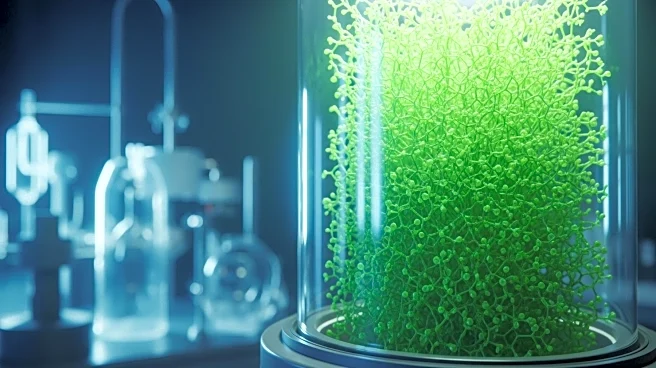What's Happening?
Asterix Foods, an Israeli startup, has emerged from stealth mode with $4.2 million in funding to scale the production of animal-free proteins using plant cell culture technology. The funding round was led by CPT Capital and included contributions from Grok Ventures, ReGen Ventures, and SOSV. Asterix Foods aims to produce dairy, egg, and other animal proteins more efficiently and cost-effectively than traditional methods. The company plans to expand its team and establish pilot-scale production to distribute samples to the industry. Founder and CEO Dan Even, PhD, highlights the advantages of plant cell culture over microbial fermentation, particularly in producing complex glycoproteins necessary for functional performance in the food industry.
Why It's Important?
The development of animal-free proteins through plant cell culture represents a significant advancement in sustainable food production. This technology could reduce reliance on traditional animal farming, which is resource-intensive and environmentally taxing. By offering a cheaper and faster production process, Asterix Foods could disrupt the food industry, providing alternatives that are less costly and more sustainable. The potential to produce complex proteins that mimic those found in animal products could benefit food manufacturers seeking to meet growing consumer demand for plant-based options. This innovation may also alleviate some regulatory challenges associated with allergen management in molecular farming.
What's Next?
Asterix Foods plans to license its technology to ingredient companies, dairy producers, and other food manufacturers. The company will provide bioreactors, cell lines, and processes, allowing partners to integrate production into their existing operations. This approach could facilitate rapid market testing and expansion, enabling companies to quickly adapt to consumer demand for animal-free products. The startup's focus on simplifying downstream processing could further enhance the economic viability of its technology, making it attractive to potential partners.
Beyond the Headlines
The emergence of plant cell culture technology could have broader implications for the biotechnology sector, potentially paving the way for new applications in pharmaceuticals and cosmetics. The ability to produce complex proteins efficiently may lead to innovations in other industries, where glycoproteins play a crucial role. Additionally, this technology could contribute to global efforts to reduce carbon emissions and promote sustainable agricultural practices.








